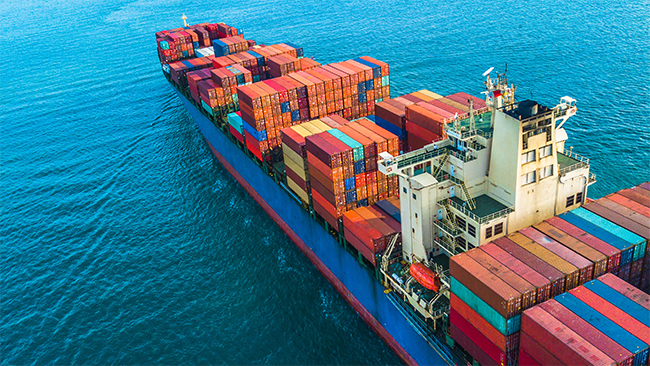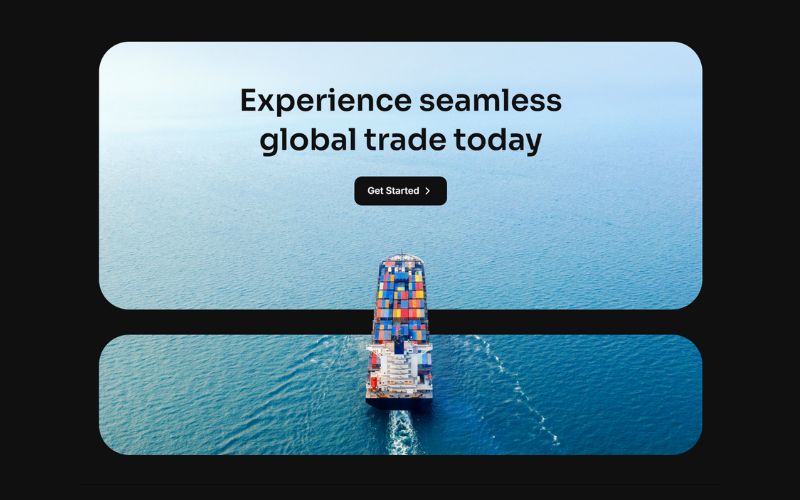Optimize your business: use unlimited savings with Pazago fulfilled now!
Get Started ->For Indian SMEs engaged in import and export, the global marketplace presents both opportunities and challenges.
In April 2025, India’s merchandise exports reached a substantial US$38.49 billion, while imports surged to US$64.91 billion, revealing the growing importance of export-focused strategies to bridge this trade gap.
However, despite the figures, many businesses struggle to differentiate between the concepts of international trade and international business. Though the terms may seem interchangeable, they represent distinctly different strategies that impact everything from market entry to regulatory compliance.
For SMEs looking to expand globally , understanding the subtle but crucial differences between international trade and international business is essential.
This blog will explore the key distinctions between international trade and international business, and why they matter for your global growth strategy.
TL;DR
- International trade involves the buying and selling of goods and services across borders. International business encompasses trade, foreign investments, franchising, licensing, joint ventures, and operations.
- Trade is short-term and transactional. International business is long-term and strategic, requiring market adaptation, compliance, and local presence.
- Companies often start with trade, then move to partnerships or investments as part of their international business strategy.
- Trade risks encompass tariffs, logistics, and payment issues. Business risks add layers like political instability, cultural barriers, and operational compliance.
- Managing cross-border commerce, whether shipping products or running overseas operations, requires innovative tools like Pazago for tracking, documentation, compliance, and collaboration.
What is International Trade?
International trade is the exchange of goods and services across national borders. It focuses on two key aspects: exports (goods or services sold to other countries) and imports (those purchased from them).
It’s a straightforward, transactional process. One party sells, the other buys, with no long-term operations involved.
Example: India exports generic drugs to the U.S. pharmaceutical market. A factory in Gujarat manufactures them, and an importer in New York handles distribution. It’s a clean and efficient sale across borders, which is exactly what international trade is all about.
What is International Business?
International business includes all cross-border commercial activities, not just trade. It’s about how companies operate globally, involving not only private firms but also governments and public entities.
It covers:
- Trade (imports and exports)
- Licensing agreements (sharing IP or tech)
- Franchising (expanding brand presence)
- Joint ventures (partnering with foreign firms)
- Foreign direct investment (FDI) (setting up local operations)
Example: Starbucks didn't enter China just to sell coffee. It built a long-term presence by opening stores, forming joint ventures, hiring local talent, and adapting to local preferences. That is international business: strategic, long-term, and built for scale.
Now that we understand the basics of international trade and international business, let us examine the differences between the two in more detail below.
Also Read: Understanding Incoterms in International Trade
Key Differences Between International Trade and International Business
International trade involves the buying and selling of goods and services across borders. International business goes further. It includes investments, operations, and long-term strategy. Here’s how they differ:
Now that you know the differences between the two, you should also know how international trade and international business work together globally.
Suggested Read: Understanding International Trade Insurance Documents
How International Trade and International Business Work Together

When exploring international trade vs international business, it’s easy to think of them as separate concepts. But in practice, they often function as stages of the same global growth strategy.
1. Trade as the Starting Point
International trade is usually the first move. A company may begin by exporting goods or services to test a foreign market without committing major resources. This step is low risk and provides valuable insights into demand, pricing, and local competition.
2. Licensing and Partnerships
If exports perform well, the next logical step is to form strategic partnerships. This could involve licensing a local partner to produce or distribute your product. While this doesn’t establish a physical presence, it deepens your foothold in that market.
3. Direct Investment and Presence
Success in trade and partnerships can lead to direct investment. This may include:
- Opening a sales office
- Establishing a manufacturing facility
- Entering a joint venture with a local firm
At this stage, you're no longer just trading; you're investing. You’re doing international business. You’re engaging in operations, management, and long-term planning within another country.
4. Trade as a Support System
Even companies with a full overseas presence rely on trade. Why? Because:
- Raw materials may come from global sources
- Cross-border logistics support production
- Exporting finished goods sustains cash flow
In short, international business often depends on international trade for supply chain efficiency and market expansion.
5. Two Sides of the Same Coin
They’re connected, but not interchangeable. Trade can exist without a business presence. But international business rarely happens without some form of trade. One enables the other.
So, why does this distinction matter in the business world? Let us understand in detail below.
You Might Also Like: The Importance of Import Pre-Shipment Inspection Services for Your Business
Why the Distinction Between International Trade and International Business Matters
Understanding the difference between international trade and international business is not just academic. It has real-world implications for strategy, compliance, and competitiveness. Whether you're a business owner, policymaker, or student, understanding the differences between these two areas helps you make informed decisions in global markets.
1. Strategic Focus and Expansion Planning
International trade focuses on the exchange of goods and services across borders. International business, on the other hand, covers a broader scope, including investment, operations, marketing, and management.
Why it matters: Companies entering new markets need to plan beyond just shipping products. Recognizing the difference helps in setting up joint ventures, navigating foreign regulations, or launching subsidiaries, not just exporting.
2. Regulatory and Compliance Requirements
International trade deals with customs laws, tariffs, trade agreements, and import-export documentation. International business must address local labor laws, corporate taxes, FDI regulations, and intellectual property rights.
Why it matters: Mixing up the two could lead to compliance failures. For instance, a business might clear customs (in trade) but violate investment laws (in business), resulting in penalties or shutdowns.
3. Risk Management
The risks in international trade include currency fluctuations, shipping issues, or delays at ports. Risks in international business involve political instability, cultural barriers, or talent shortages.
Why it matters: Understanding international trade vs international business helps firms develop more comprehensive risk mitigation strategies tailored to the nature of their operations.
4. Policy and Economic Impact
Governments frame different policies for trade, such as free trade agreements, and business, such as FDI limits or repatriation rules.
Why it matters: Policymakers must distinguish between trade and business to create effective regulations and attract sustainable foreign investment.
5. Academic and Professional Clarity
In academia and professional training, blending the two terms can lead to confusion. Trade deals are distinct from foreign acquisitions or franchise expansions.
Why it matters: A clear understanding of international trade vs international business shapes better research, consulting, and corporate training outcomes.
The distinction between international trade and international business affects how organizations operate, comply with laws, plan for growth, and manage risk. Blurring the lines can lead to missed opportunities or costly mistakes.
Lastly, let us discuss the misconceptions that are related to international trade and internal business in detail below.
Also Read: 12 Required Pre-Shipment Documents for Export Procedure and Shipping Process
Common Misconceptions of International Trade and International Business
The terms "international trade" and "international business" are often used interchangeably, leading to confusion about their actual meanings and scopes. Let’s break down the most common misconceptions:
Misconception 1: International trade and international business mean the same thing
Truth: International trade is only a part of international business. Trade involves the import and export of goods and services, while international business covers a broader range of activities, including foreign investments, licensing, franchising, and operations management in other countries.
Misconception 2: International business always involves physical products
Truth: Many assume international business is just shipping goods across borders. In reality, it also encompasses services such as consulting, SaaS, financial services, and intellectual property licensing. Trade may focus more on goods, but business goes far beyond that.
Misconception 3: Only large corporations engage in international business
Truth: With the rise of digital platforms and global logistics networks, even small businesses and solo entrepreneurs can participate in international markets through e-commerce, digital exports, and remote services.
However, cross-border operations present additional compliance, documentation, and logistics challenges. Pazago helps Indian SMEs simplify trade processes by automating critical steps like documentation, data accuracy, and shipment visibility. This allows you to stay focused on scaling your business.
Misconception 4: Trade agreements only impact exports and imports
Truth: Trade deals influence broader areas like investment protection, labor laws, taxation, and service sector regulations. International business decisions, such as establishing operations or forming partnerships, can also be influenced.
Misconception 5: All cross-border transactions follow the same rules
Truth: There’s a big difference between shipping goods across borders and investing in a foreign subsidiary. Customs and tariffs govern trade; international business involves local labor laws, tax structures, and regulatory compliance.
Misconception 6: You need a physical office to do international business
Truth: Thanks to remote tools, cloud platforms, and global talent marketplaces, businesses can go international without setting foot in another country. Trade may involve physical goods, but business doesn’t always require physical presence.
You Might Also Like: Understanding Different Types of International Trade
How Pazago Supports Cross-Border Commerce and Operations

International trade refers to the exchange of goods and services across borders. International business covers a wider scope, including foreign investments, global operations, and cross-border management.
Both require visibility, compliance, and coordination. Pazago helps businesses manage these complexities with ease.
- Centralized Documentation: Exporting goods or expanding globally requires accurate paperwork. Pazago stores and organizes all documents in one place, reducing delays and errors.
- Real-Time Logistics Tracking: Shipment visibility is essential for smooth operations. Pazago’s tracking tools offer live updates from dispatch to final delivery.
- Simplified International Payments: Cross-border transactions often face FX issues and delays. Pazago supports multi-currency payments, auto conversions, and secure processing.
- Risk and Insurance Management: Loss, damage, or customs rejection are common risks associated with international trade. Pazago offers digital insurance tools to protect your cargo and streamline claims processing.
- Smooth Partner Collaboration: Coordinating across time zones can be challenging. Pazago connects teams, suppliers, and agents to ensure clear, timely communication.
- Trade Compliance Support: Global regulations change frequently, and missing an update can cost you. Pazago keeps you informed and compliant with current trade requirements.
Whether you're shipping products or managing global operations, Pazago gives you the tools to stay in control and move faster.
Conclusion
Understanding the difference between international trade and international business isn’t just theoretical; it’s strategic. Trade is about transactions. Business is about building presence, handling regulations, and forming lasting partnerships. Knowing which one you’re doing shapes how you plan, invest, and grow.
As global operations become more complex, managing cross-border logistics demands smarter tools. Pazago simplifies that complexity with real-time tracking, centralized control, and automation. It helps you streamline trade and support international expansion.
Ready to manage your cross-border operations more efficiently? Book a demo with Pazago and discover how we can assist you.
FAQs
1. What is the key difference between international trade and international business?
Ans. International trade focuses on the exchange of goods and services across borders. International business includes trade but also covers foreign investments, licensing, franchising, and strategic alliances, activities that involve establishing a long-term presence in foreign markets.
2. Is international business broader than international trade?
Ans. Yes. International business is an umbrella term. It includes trade but also involves business operations, such as setting up subsidiaries, managing cross-border teams, and adapting products to local markets.
3. Can a company engage in international trade without being involved in international business?
Ans. Yes. A company that only exports or imports goods is engaged in international trade. It becomes part of international business when it expands operations abroad, invests in foreign assets, or enters into cross-border partnerships.
4. Why does the distinction between trade and business matter?
Ans. Understanding the distinction helps companies plan better. Trade is transactional and short-term. Business is strategic and long-term. Confusing the two can lead to poor resource allocation or misjudged market strategies.
5. Are there different risks involved in trade vs business?
Ans. Yes. Trade risks include currency fluctuations, tariffs, and shipping delays. Business risks encompass cultural differences, legal compliance, political stability, and the management of overseas operations.


.png)








